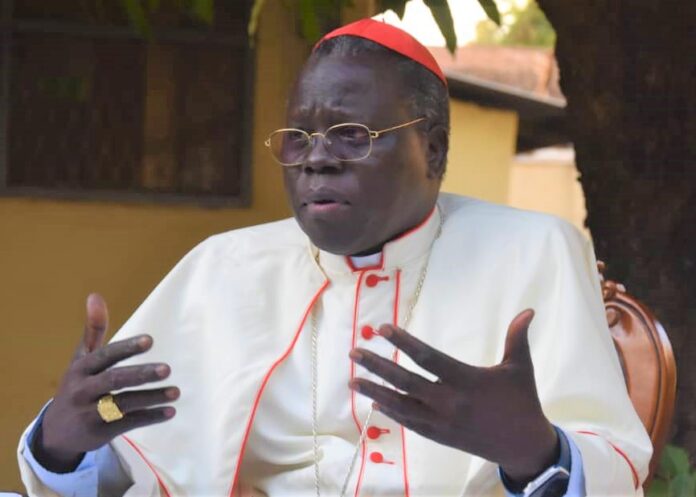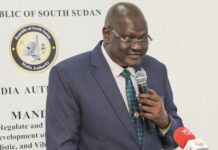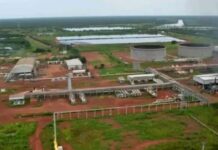The South Sudan Council of Churches (SSCC) has strongly criticized political elites and parties involved in the peace process for failing to honor their commitments, urging them to stop exploiting the resilience of the South Sudanese people.
In a pastoral message delivered by His Eminence Stephen Cardinal Ameyu Martin Mulla, Deputy Chairperson of the SSCC, the Council highlighted that the lack of political will has been a major factor in the continued delay of key provisions in the country’s peace roadmap.
Cardinal Ameyu, reading the statement on behalf of the SSCC, pointed out that repeated extensions of the transition period have failed to address the underlying issues stalling the implementation of the peace roadmap.
The reasons given for the latest extension, he said, mirrored those cited during previous extensions, and yet, substantial progress remains elusive.
“The Church has been closely monitoring the implementation of the roadmap,” Cardinal Ameyu stated. “All the reasons highlighted for this extension were also presented during previous extensions.
The Church has realized that the lack of political will has resulted in the continued failure to implement the most important provisions of the roadmap.”
The SSCC’s message conveyed deep frustration with the country’s leadership, stressing that a political decision is urgently needed to secure sustainable peace.
They expressed concern that political elites and signatories to the peace agreement are exploiting the patience and resilience of South Sudan’s citizens by failing to act decisively.
“Although there is an undeniable need for political decisions to ensure lasting peace in South Sudan, the political elites and parties to the agreement must refrain from continuously exploiting the resilience of the South Sudanese people. They must honor their promises,” the Church leaders said.
Call for Prioritization of Peace and Reconciliation
The SSCC leaders emphasized the importance of prioritizing peace, healing, and reconciliation, urging all stakeholders to put the country’s welfare above personal or political gain.
They stressed that addressing the socio-political challenges facing South Sudan requires more than just words, but a collective commitment to ensuring that peace takes root.
They also called on the government to address the needs of the most vulnerable populations, particularly those affected by ongoing flooding, as well as refugees and internally displaced persons (IDPs).
Additionally, they urged the government to resolve the worsening economic crisis and ensure timely payment of civil servants and members of the organized forces, many of whom have gone months without salaries.
“We urge the government to take immediate action to assist those affected by flooding, refugees, and IDPs, and to alleviate the current dire economic situation. It is crucial that civil servants and organized forces receive their salaries on time,” the Church leaders reiterated.
Reminder of Past Commitments
In their pastoral message, the Church leaders reminded the country’s political elites of their commitments made during key spiritual and peace-building events, including the 2019 South Sudan Spiritual Leadership Retreat in Rome and the Ecumenical Peace Pilgrimage led by Pope Francis.
“We remind the political leaders to remain true to the promises they made during the South Sudan Spiritual Leadership Retreat in Rome and the Ecumenical Peace Pilgrimage with Pope Francis,” the statement emphasized, referencing the solemn pledges for peace and reconciliation made during those moments of international focus on South Sudan.
Appeal to the International Community
The joint statement concluded with a call for continued support from the regional and international communities, as well as Ecumenical partners, in South Sudan’s pursuit of peace and development.
The Church leaders acknowledged the critical role these partners have played thus far and expressed hope that their engagement would continue as the country navigates its challenges.
“We appreciate and urge the regional and international community, along with our Ecumenical partners, to remain steadfast in supporting the people of South Sudan in their journey toward peace and development,” the SSCC leaders said in their closing remarks.
As South Sudan approaches the next critical phase of its transitional roadmap, the Church remains firm in its call for genuine political will and action, reminding all parties that the future of the nation depends on their ability to work together for the common good.





